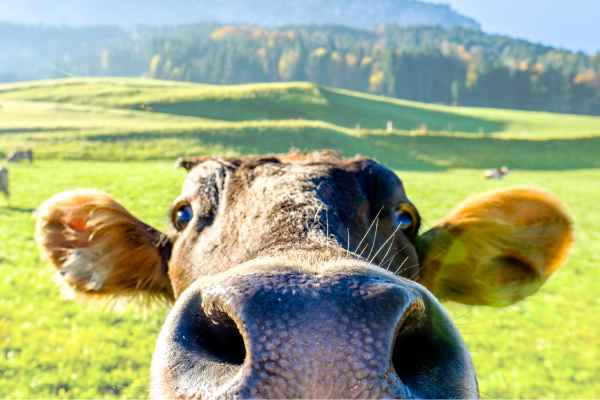Cow burp buster passes muster
Trials show the benefits of cattle feed supplement can push beyond methane reduction.

The results are in on trials of an Australian-made supplement that promises to reduce livestock methane emissions at scale.
Last year, Perth-based startup Rumin8 raised AUD$17 million in a funding round led by Bill Gates’ Breakthrough Energy Ventures. Its mission was to reproduce naturally occurring compounds that inhibit methane production in livestock, starting with a type of red seaweed native to Australia called Asparagopsis.
Animal-generated emissions – mostly in the form of methane from cattle burps – are said to be equal to six per cent of human-generated greenhouse gases and larger than the aviation industry.
Methane is also much better at trapping heat than carbon dioxide with 28 times the global warming potential, according to the Food and Agriculture Organisation (FAO).
Rumin8's first feed supplement has now been studied in three trials by independent universities involving 92 head of cattle in Australia, the US and Brazil lasting between 75-130 days and was found to reduce methane emissions by up to 86%.
Beefing up
The results showed another big benefit – weight gain of between 8.4% to 12.5% higher than control groups on the same base ration.
As Bill Gates recently wrote, “Rumin8, whose feed supplements have successfully reduced livestock methane emissions by over 90 percent while boosting productivity, demonstrates that we can enjoy beef and dairy without the high environmental costs they're typically associated with.”
Although methane reduction is the main aim, according to Rumin8, the weight gain finding is also significant because it provides a financial incentive for farmers to adopt the supplement.
“Weight gains are pivotal for the commercial adoption of methane reducing feed and water additives in the cattle industry,” said Rumin8 CEO David Messina. “At the very least those weight gains have the potential to offset some of the cost of these additives, all while helping the planet."
New taxes may be another incentive, with Denmark set to impose the world’s first emissions tax on livestock from 2030. Last year, New Zealand proposed a first-in-the-world tax on cow emissions, although the plan has since been axed.
“Rumin8, whose feed supplements have successfully reduced livestock methane emissions by over 90 percent while boosting productivity, demonstrates that we can enjoy beef and dairy without the high environmental costs they're typically associated with.”
Asparagopsis was first discovered to be capable of reducing methane emissions by 80% or more by scientists from CSIRO and James Cook University, supported by Meat & Livestock Australia (MLA).
On the back of the discovery, the CSIRO established a commercial entity called FutureFeed four years ago. This entity holds the global intellectual property for the use of Asparagopsis as a livestock feed ingredient.
FutureFeed says its latest study also shows that with just a small amount of Asparagopsis included in feed, methane emissions can be reduced by up to 99% in a beef feedlot system.
Over an 81-day feeding period, 20 Angus heifers in a beef feedlot were divided into four groups with each being fed a varying amount of Asparagopsis-oil. The resulting levels of methane yield were reduced by 64%, 98% and 99%, respectively.
FutureFeed now has several licensee partners that grow and manufacture the seaweed in Australia, New Zealand, United States, Europe and Canada.
Redefining production
Rumin8’s approach, in contrast, aims to avoid the cost and complexity of ocean-based seaweed cultivation by identifying and then manufacturing only the bioactive ingredients. In January it opened a demonstration plant in Perth to showcase the commercial viability of its products.
“The demonstration plant will help Rumin8 overcome one of the biggest hurdles to commercialisation,” Messina said.
“We know our product works in terms of reducing methane emission from livestock while retaining or improving productivity. Now we need to refine the production of our formulations in a pharmaceutical manufacturing setting rather than a laboratory setting."
The demonstration plant is a precursor to large scale production, including pilot plants and full-scale commercial operations, according to the company.
Once operating at maximum capacity, the demonstration plant is expected to produce thousands of doses a day, providing additives to support large-scale trials of Rumin8’s product.
Rumin8's mission is to identify naturally occurring compounds with anti-methanogenic properties and then reproduce them in an efficient and scalable way. The startup's first product replicates the methane reductions of red seaweed (Asparagopsis), but instead of harvesting it from the marine ecosystem, the plant’s burp-busting bioactive will be manufactured and transformed into a feed supplement in the company’s laboratories in a patent-protected process. Rumin8’s livestock feed supplements will be packaged into a liquid, an oil and, a solid and slow-release formulation for use in both feedlot and grazing cattle.





